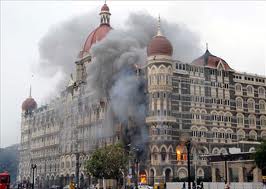
Islamabad, July 18: In a setback to the prosecution of seven suspects charged with involvement in the 26/11 Mumbai attacks, a Pakistani court on Tuesday ruled that all findings of a judicial commission that visited India were illegal and could not be made part of the evidence against the accused.
Chaudhry Habib-ur-Rehman, the judge of the Rawalpindi-based anti-terrorism court No 1, said in an order that all the proceedings and the report of the Pakistani judicial commission that visited Mumbai in March were “illegal”.
“The judge ruled that the commission’s report is illegal and could not be made part of the records for the case,” said Khwaja Haris Ahmed, counsel for Lashkar-e-Toiba commander Zakiur Rehman Lakhvi, one of the seven accused.
“The court has the right to examine whether the working and report of a commission was duly executed and in this case it ruled that the report was not duly executed. The report will not be read in evidence,” Ahmed said.
The lawyers defending the accused had opposed the report of the Pakistani commission, saying it had “no legal value” as the panel was not allowed to cross-examine witnesses during the visit to Mumbai.
The eight-member commission, which included prosecutors and defence lawyers, visited Mumbai and interviewed a judge, a senior police officer and two doctors who conducted the autopsies of the terrorists involved in the attacks and their victims.
Indian officials had said that cross-examination of the witnesses was not allowed in line with an agreement between New Delhi and Islamabad.
Chief prosecutor Chaudhry Zulifqar Ali had earlier told the court that another commission could be sent to India after ensuring that it would be allowed to cross-examine witnesses.
In response to this, Judge Rehman on Tuesday observed that if India and Pakistan could reach some new agreement that would allow the cross-examination of witnesses, the prosecution could move an application to send another commission to Mumbai. The judge adjourned the case till July 21.
Sources said the court’s ruling could have an adverse effect on the prosecution of the seven suspects charged with planning, financing and executing the terror attacks in Mumbai that killed 166 people in November 2008.





Comments
Add new comment